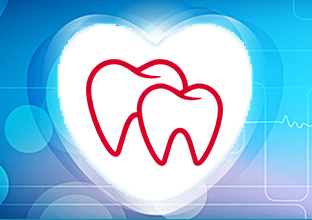Vitamins and minerals for a healthy mouth
Read More
Vitamins and minerals for a healthy mouth
A healthy rich diet full of vitamins and minerals helps to keep your body healthy and even helps in maintaining mouth healthy too. Our daily food intake contains a lot of vitamins and minerals and knowing them will help you maintain teeth and gum health.
Let’s make a mental note of the below vitamin:
Calcium- Calcium is one of the most important minerals for the bones which include the teeth. It strengthens the enamel of the teeth which prevents cavities and tooth decay. Calcium helps in bone building and gives structural support to the teeth and jaws.
Our daily foods like dairy products, broccoli, beans, carrots, almond, and salmon give the daily dose of calcium needed.
Vitamin D- Vitamin D helps to boost bone density. It also helps to absorb and retain calcium in the teeth for remineralization that prevents tooth decay and cavities. It may help in maintaining gum tissue and reduce inflammation in the gum by increasing the body’s antibacterial defense systems that can prevent gingival or other gum diseases.
Our body naturally makes vitamin D when exposed to the sun but can also be found in foods like fatty fish, canned tuna, milk, orange juice, and cereal.
Potassium- Potassium also boosts bone density same as vitamin D. Magnesium and potassium prevent blood from being acidic which can drain calcium from the teeth.
Potassium can be found in bananas, avocados, sweet potatoes, and other fruits and vegetables.
Magnesium- Magnesium is essential for dental health for two reasons. First, it helps to absorb calcium, and second, strengthens tooth enamel and teeth.
Whole grains, legumes, and nuts have magnesium.
Vitamin C- Vitamin C is important for the growth, repair, and maintenance of the teeth and gums. Vitamin C helps in the synthesis of collagen in the dentin. Collagen also strengthens gums and connective soft tissue. Healthy gums can prevent inflamed, bleeding, and painful gums that do to gingivitis, the early stage of gum disease, and teeth loosening.
Citrus fruits, bell pepper, broccoli, strawberry, and tomato are good source of Vitamin C.
Phosphorus- Phosphorus is an important mineral that protects and helps rebuild tooth enamel. Phosphorus with calcium creates hydroxyapatite, the main structural component of bones and tooth enamel. Phosphorous deficiency can weaken the enamel and increase the risk of cavities
Good sources of phosphorus are dairy products, nuts, whole grains, soybeans, beans, lentils, pumpkin seeds, meat, poultry, fish, and eggs.
Vitamin K- Vitamin K helps to shield teeth enamel from harmful substances. It assists with both bone growth and bone density. It helps to produce osteocalcin, a protein that helps to strengthen the bones in our mouth. Vitamin K deficiency can slow down your body’s healing process and make it prone to bleeding.
Food like kale, lettuce, collards, spinach, parsley, broccoli, and brussels sprout are good sources of Vitamin K.
Vitamin A- Vitamin A keeps the immune strong, and fight bacteria and other infection in the mouth. Tooth enamel contains keratin, and vitamin A helps in the formation process of the protein. It also helps with saliva production in the mouth and washes away food particles and bacteria.
Some foods that contain vitamin A like carrots, egg yolks, sweet potatoes, cantaloupe, and dark green leafy vegetables.
Omega-3s - The omega-3 fatty acids docosahexaenoic acid (DHA) and eicosapentaenoic acid (EPA) have anti-inflammatory and antibacterial benefits, so it makes them an effective treatment for periodontal diseases.
Fish and other seafood, flaxseed, chia seeds, walnut, soybeans, meat, egg, and dairy products have omega-3S.
Probiotics – Well known that probiotic helps with gut health. Probiotic is good bacteria that have antimicrobial and anti-inflammatory properties that help with periodontal disease.
Food that contains probiotic benefits is yogurt, buttermilk, soft cheese, and sour pickles.
The right nutrition is the best way to take care of your teeth and overall dental health. Eating a healthy and balanced diet, then you’re getting enough of these essential vitamins and minerals.

This part of the site is intended for dental professionals and students only. Products and goods that are sensitive to the health and safety of the patient.
Read More
Therefore, to visit the site:
OR

Get access to your Orders, Wishlist and Recommendations
We do not share your personal details with anyone.

I am agree to all terms and condition of Smile merchant. Read here
Kindly create your profile
